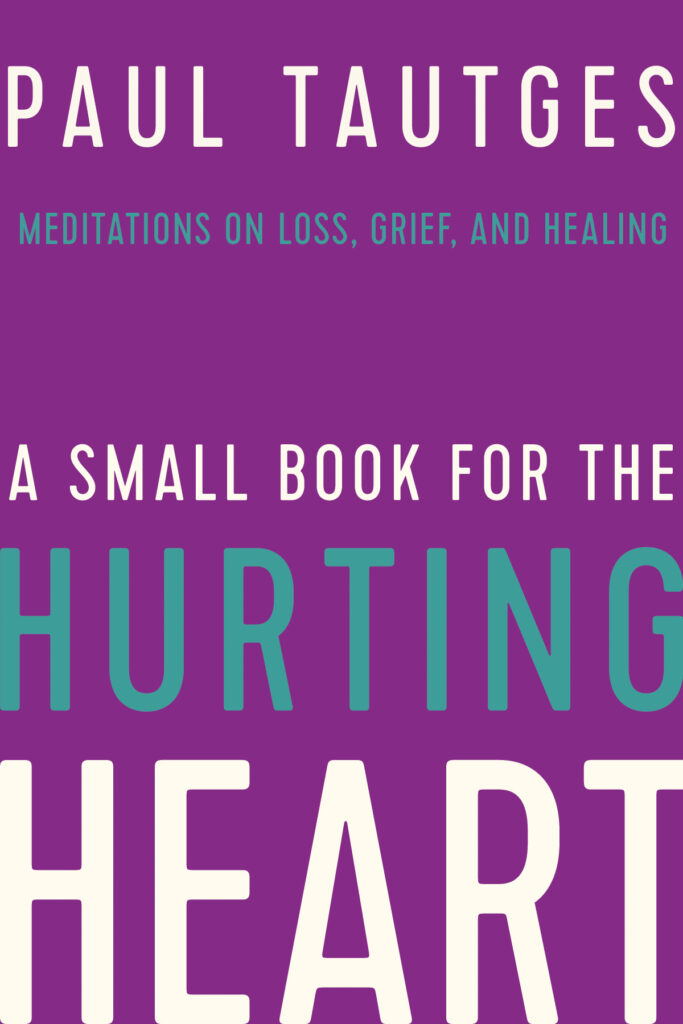Is it not from the mouth of the Most High
Lamentations 3:38
that good and bad come?
Most people find it pretty easy to accept that the good things which happen are from the hand of God. But we find it hard to accept any bad, tragic, or painful experiences that come our way. Can they really be from God? Are they really under his governance? Can they really be for a good purpose? The Bible says, “Yes, they are. Yes, they can.”
Boldly, the Lord declared through the mouth of Isaiah: “I form light and create darkness; I make well-being and create calamity; I am the Lord, who does all these things” (Isaiah 45:7).
Lamentations 3:38 agrees, “Is it not from the mouth of the Most High that both good and bad come?” Perhaps, when he wrote these words, Jeremiah was thinking about the sufferings of Job whose confidence in the sovereign God fueled his affirmation of the same truth. “Shall we receive good from God, and shall we not receive evil?” (Job 2:10). Of course, Job did not know about Satan’s involvement in his suffering until the Holy Spirit inspired the book that bears his name. That’s where we have a distinct advantage over Job. We know that God initiated the testing of Job’s faith, though Satan’s accusations and evil ways were the secondary cause of his suffering (Job 1:6–19).
Satan’s freedom is limited; God has him on a leash. But Job didn’t have this knowledge. He didn’t know he was at the center of an invisible war. By faith alone, he anchored himself to the trustworthy character of God. He humbly bowed his will to God’s.
The same is true of the apostle Paul. He recognized that ultimately both good and bad come from God. A “messenger of Satan” was employed to be a “thorn” in the flesh, and instrument of humility, but Paul’s repeated pleas to God testify of his faith in God’s authority over all, even evil (2 Corinthians 12:7–8).
Now let me be clear. Scripture does not teach that God is evil (Habakkuk 1:13). Nor is he the cause of sin or temptation (James 1:13). Nonetheless, the Bible affirms that God employs both good and evil for his wise and gracious purposes, even someone as evil as the devil. In When God Weeps, Joni Eareckson Tada likes to say it this way: “Sometimes God allows what he hates to accomplish what he loves.” This is the mystery of his providence.
Somehow the Lord maintains the sovereign orchestration of the events of his world, while holding every one of his creatures (angelic and human) responsible for their choices. Therefore, God’s good purposes override Satan’s wicked and devious schemes in order to bring about God’s plan to redeem sinners to the glory of his grace.
For that reason, with the apostle, we believe “that for those who love God all things work together for good, for those who are called according to his purpose.” Immediately following this verse, we learn of at least one of God’s good purposes for us, that is, “to be conformed to the image of his Son” (Romans 8:28–29).
Can you see any ways that your loss has brought you closer to Jesus?
God Has Not Forgotten
Is it not from the mouth of the Most High
Lamentations 3:38
that good and bad come?
The pain of loss can lead you to feel alone, even forgotten. The lack of answers to your Why questions and the drying up of the stream of encouraging phone calls, or mail can add to this solitary feeling. There also may be a lack of a sense of what our society calls closure; that is, the acceptance of what has happened and the transition to something new. In all of this, you may wonder where God is. Your heart may speculate whether he, too, has forgotten you. But he has not!
The healing that you long to experience may not come right away. It rarely does. It will take time. You need to accept that, and be patient. By the time the writer of Psalm 77 asks, “Has God forgotten to be gracious?” he has already been earnestly crying out to him.
“I cry aloud to God,” he begins, “aloud to God, and he will hear me” (v. 1). Limping alongside his grief, intertwined with his pain, are cries of faith. “In the day of my trouble I seek the Lord; in the night my hand is stretched out without wearying; my soul refuses to be comforted” (v. 2). Fueling his cries of faith is the pain that will not go away, but lingers. It is not physical pain, but the inner pain of sorrow and loss. It is the hurt that persists. But God does not find this man’s questions offensive. No, God welcomes his lament.
“When I remember God, I moan, when I meditate, my spirit faints. You hold my eyelids open; I am so troubled that I cannot speak” (vv. 3–4). He moans, yes. But he moans in faith . . . to God. His complaint does not flow from unbelief, but is evidence of an active faith—faith that longs for the completion of the incomplete, the resolution of the unresolved. When the aches of our heart thrust us toward the only One who can bring true, lasting comfort, then they serve a good purpose. Even if we can’t see anything good in the tragic event that triggered our grief, turning to God means that we are headed in the right direction.
Pain has the potential to stimulate growth in our relationship with God, since it often reawakens us to eternal realities. In this way, God can use our sorrow to draw us closer to him. God has not forgotten to be gracious. To the contrary, it is because of his grace that he remembers you. He is nurturing your faith, so that it will not wither or get stale. You are not forgotten!
Will you trust him today? For further meditation: read all of Psalm 77.
Excerpted from A Small Book for the Hurting Heart: Meditations on Loss, Grief, and Healing ©2020 by Paul Tautges. May not be reproduced without prior written permission.







